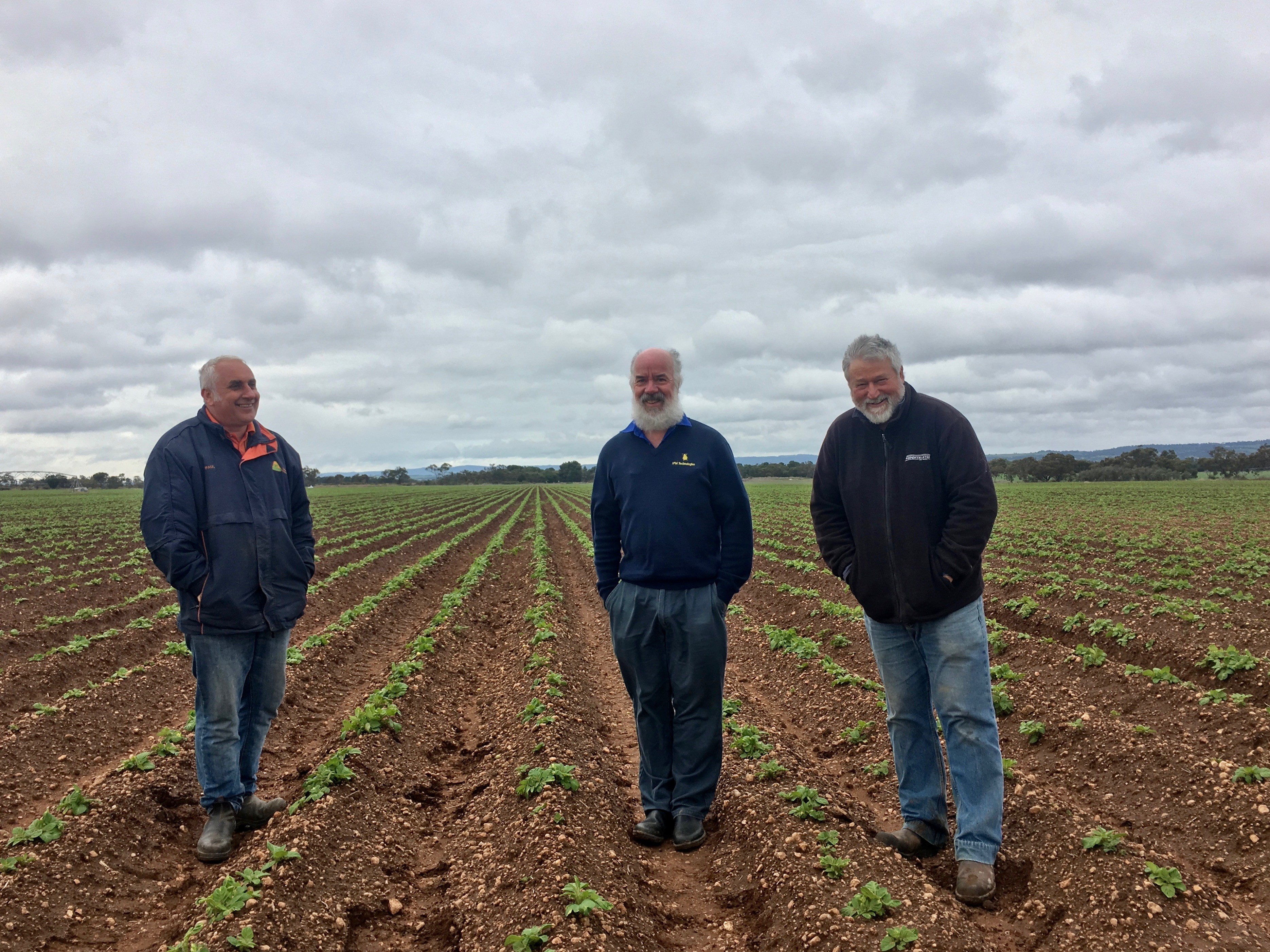Pat Virgara: A beneficial outcome
South Australian potato grower Virgara Bros has been involved in an IPM project using beneficial insects and 'soft' chemistry to control pest populations, including aphids, in potato crops. Weekly visits from agronomist Paul Pezzaniti have helped Virgara Bros largely avoid the use of expensive insecticides to control aphids.
Fast facts
Name: Pat Virgara
Location: Angle Vale, South Australia
Works: Virgara Bros
Grows: Potatoes
Common sense plays an integral role in the life and work of South Australian potato grower Pat Virgara of Virgara Bros.
So, when the chance arose to work with Virginia-based Complete Ag and Seed Supplies agronomist Paul Pezzaniti, Pat was only too happy to put Integrated Pest Management (IPM) to work on his Angle Vale farm to control aphids. This transition was overseen by the IPM Technologies team, which is currently conducting An IPM extension program for the potato and onion industries (MT16009), a strategic levy investment under the Hort Innovation Fresh Potato, Potato Processing and Onion Funds.
IPM focuses on the suppression of pests through a combination of methods, such as biological control, habitat manipulation, modification of cultural practices, use of resistant crop varieties, weed control, paddock selection, planting time and targeted chemistry.
Essentially, as Paul explains, he monitors Pat’s potato crops on a weekly basis and if they spot low levels of aphids one week and a build-up in numbers the next, they take action.
“We try and preserve the good insects that are naturally in the field (aphidius, lacewings, damsel bugs and ladybirds) by using a selective insecticide, such as Movento or MainMan,” Paul says.
In the cooler months, Pat generally uses less insecticides and will tolerate moderate levels of pests, and only spray if thresholds are exceeded. As he maintains, “the beneficials just need a little bit of help and they do the rest by themselves”.
“Having worked with Paul over some time, I have no doubt that we can tolerate insects to a lot higher level, so that the beneficials can come in and make a difference,” Pat says.
“We feel this is going to be a helpful strategy for potential future pests such as the potato psyllid.
“The weather has an influence on how beneficials build up. Extreme heat or cold can be an issue.”
"Having worked with Paul over some time, I have no doubt that we can tolerate insects to a lot higher level, so that the beneficials can come in and make a difference. We feel this is going to be a helpful strategy for potential future pests such as the tomato-potato psyllid."
Monitoring and assessment
Adhering to IPM principles, Pat generally avoids the use of broad-spectrum insecticides before crop senescence or spray-off and allows naturally-occurring biological control agents to control the aphids. He has also learned to assess and monitor beneficial species and pests, and employ cultural controls such as soil and irrigation management and planting of clean seed.
“Pat appreciates the whole project and can see its value. When the pressure is highest, that is when he would benefit most from the IPM,” Paul says.
Soil management was key to long-term success in the Angle Vale area, which is located about 45 minutes from Adelaide.
“With potatoes, the IPM concept didn’t work so well for some varieties as we couldn’t seal up the cracks on our soil types. And unfortunately, the potato moth can still get into some of the shallow potatoes,” Paul said.
Working on soil structure may reduce soil cracking and lessen the potato moth damage, or selecting soils that exhibit lower cracking in potato moth pressure timeslots.
Pat says that Virgara Bros are improving soil structure issues by implementing three-year rotations and using cereal crops.
“Having cereal crops puts less pressure on the need for a devoted cover crop,” he says.
“Pat predominantly grows fava beans but he’s grown some lentils, canola, wheat and barley. One of the downfalls of IPM is people tend to spray less so they are not putting on things like the trace elements.
“The end goal for us is to conserve the natural chemistry, make life better for the grower and still maintain the highest possible quality and yield.”
An IPM extension program for the potato and onion industries was funded by Hort Innovation using the fresh potato, potato processing and onion research and development levies and contributions from the Australian Government.
This grower profile first appeared in Grower Success Stories, a levy-funded booklet published by AUSVEG to promote real results from levy investment, and was featured in the AUSVEG Weekly Update published 15 January 2019. If you’d like to subscribe to receive AUSVEG publications, use our online subscription form!
Photography credit: IPM Technologies

